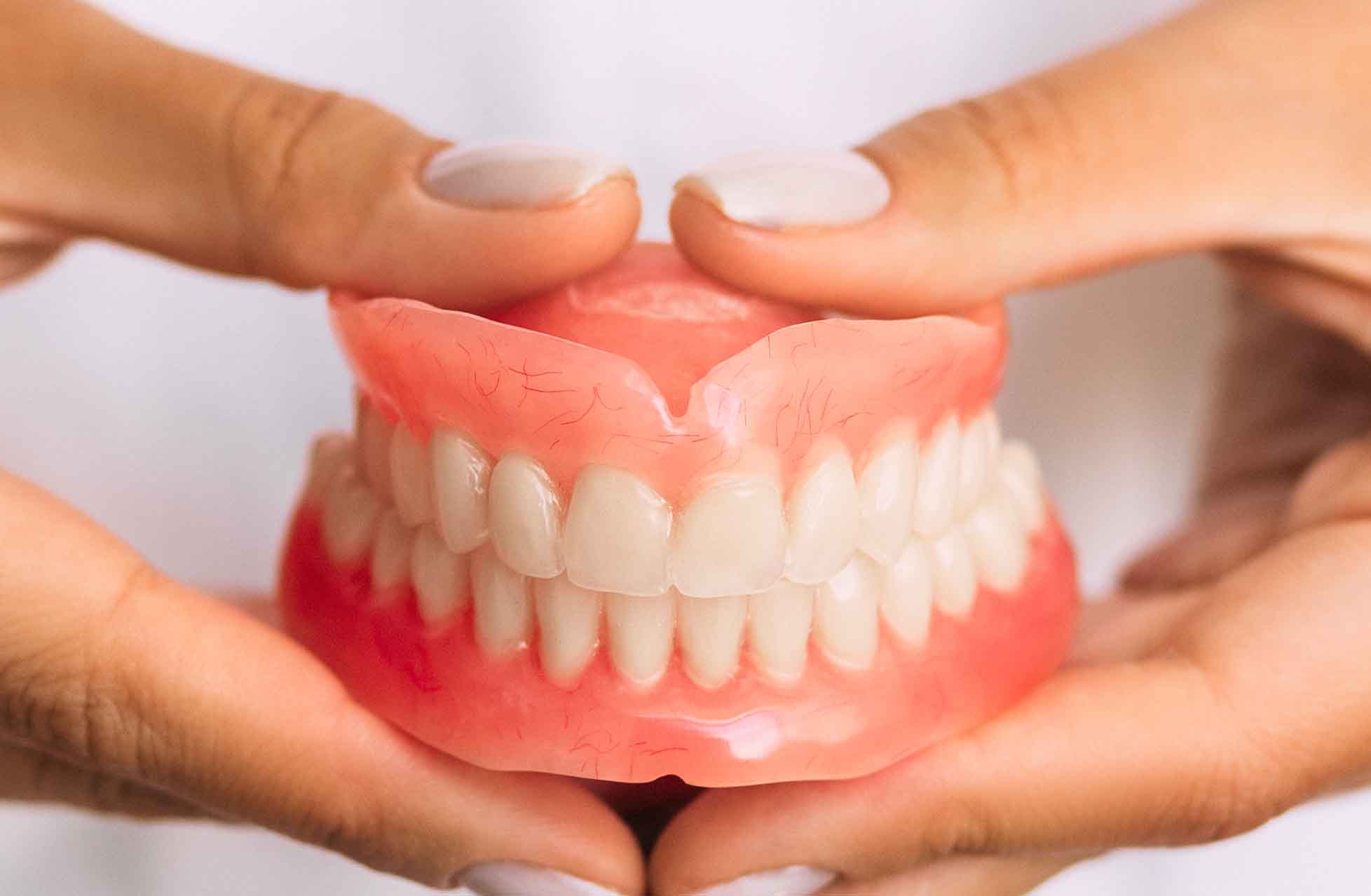After losing your natural teeth, it takes some time to adapt to having removable replacements. If your at home dentures do not fit right after the adjustment period, seek help from a professional to make the necessary adjustments. Here are a few solutions to improve the fit of your dentures:
Try Denture Relines
As your mouth changes shape, it can affect the fit of your dentures. Jawbone resorption and gum shrinkage will leave gaps that make dentures loose. A simple reline can fill in these gaps for a more comfortable fit. Your denture provider will add a soft lining material inside your dentures, then let it harden. Relining every few years can help extend the life of your dentures.
Request Denture Adjustments
Over time, small flaws in the fit of your at home dentures may develop. You might feel rubbing on your gums, excessive movement, or biting difficulty. Getting new dentures may not be needed, as a quick adjustment appointment can fine-tune the shape and fit of your existing dentures. Your denturist will file down any problem spots causing irritation or instability. Adjustments also balance your bite for hassle-free eating.
Try Denture Adhesives
Special denture creams, pastes, and adhesive strips can secure loose dentures. Adhesives act as “glue,” improving suction and preventing slippage. They come in long-lasting formulas, so you can wear your dentures all day. If you are using adhesives, remove and rinse out the dentures every night. Do not solely depend on adhesives without addressing underlying fit issues with your denturist.
To get the best hold from denture adhesives, you only need a small amount in the proper position. Put a thin strip or pea-sized dab of cream along the upper ridge where the denture seals across the roof of your mouth. Don’t apply adhesive along the biting edges or gums. Too much adhesive can make dentures harder to remove and require more cleaning.
Use Implant-supported Dentures
Modern implant options can provide a permanent foundation for dentures, eliminating movement. Your dentist places a few titanium posts in the jawbone, then secures custom dentures onto them. This also eliminates the need for denture adhesives. The implants fuse with the jawbone, keeping the dentures stable as you eat and speak.
Rinse Your Dentures
After eating with your dentures in place, food debris gets trapped under and around them. Rinsing your mouth prevents irritation and bacterial growth that causes denture odors and stains. To avoid dropping your dentures, clean them over a sink or a towel. You can also brush your gums, tongue, and palate with a soft brush. Oral hygiene keeps your mouth healthy and your dentures feeling fresh. A clean mouth will help to improve the fit of your removable appliances.
Remove Dentures To Sleep
Sleeping with dentures can lead to oral infections, distorted bite alignment, and damage over time. Give your gums and jawbone a nightly break by leaving dentures out for several hours of sleep. Soaking them overnight in water or denture cleaning solution also removes stains and bacteria. Invest in a denture bath or covered container to prevent misplacing them at night.
Get a Proper Fit for at Home Dentures
Talk to a denture specialist if your dentures are feeling loose, uncomfortable, or tight. A denturist will work with you to evaluate the fit and discuss adjustment options. With a few expert adjustments or relines, your at home dentures will feel secure and comfortable again. Before contacting your denturist for a reline, try a few of the DIY fixes by using a secure adhesive or thoroughly washing your appliance. If this does not fix the issue, contact a reputable online denture specialist.
Don’t miss out on updates and alerts – stay connected! Vents Breaking

